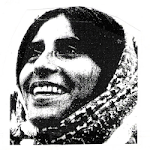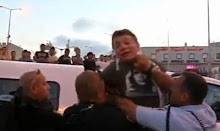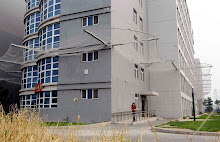Deseret News
The number of laws criminalizing poverty increased during the recession as the housing and homelessness crisis in America worsened.
Since 2006, there's been a 7 percent increase in laws prohibiting camping out in public places, an 11 percent increase in laws prohibiting loitering, a 6 percent increase in laws prohibiting begging and a 5 percent increase in laws prohibiting aggressive panhandling, according to a recent report by The National Coalition for the Homeless.
At the same time, after a double-digit jump in 2008, homelessness increased by an average of 2 percent from 2009 to 2010, according to the U.S. Conference of Mayors' Task Force on Hunger and Homelessness. Among families with children, homelessness increased by 9 percent. An average of 27 percent of homeless persons did not receive assistance last year because there weren't enough beds or shelters would not accept children.
"In this economy, cities are facing really tight budgets, so they may not be able to build up or fund housing to meet the need," Tulin Ozdeger, civil rights director for the National Law Center on Homelessness & Poverty, told USA Today. "Many people are being forced to live out on the streets."
In an essay published this week in The Guardian, Barbara Ehrenreich, author of the New York Times bestselling book "Nickel and Dimed: On (Not) Getting By in America," tells the story of a 62-year-old disabled veteran who was dragged from a homeless shelter to jail because he had an outstanding warrant for "criminal trespassing," which is how Washington, D.C., defines sleeping on the streets.
In some areas of the country, Ehrenreich wrote, cities are even beginning to crack down on do-gooders who want to hand out free food to the homeless. Las Vegas passed an ordinance forbidding the sharing of food with any "person whom a reasonable ordinary person would believe to be entitled to apply for or receive" public assistance. In Florida, Gainesville law limits the number of people soup kitchens may serve daily. In Phoenix, zoning officials have stopped a local church from serving breakfast to homeless people.
The phenomenon of criminalizing poverty isn't limited to the homeless, though. Kaaryn Gustafson of the University of Connecticut Law School compared applying for welfare, which may entail mug shots, fingerprinting and lengthy interrogations about child paternity, to "being booked by the police."
In Florida, legislators recently passed a law requiring welfare recipients to undergo drug screenings, according to CNN. People who can't afford to pay court fees or traffic tickets in Michigan are made to sit in jail.
"Pay-or-stay sentences are no choice for the poor," Michael J. Steinberg, director of Michigan's chapter of the American Civil Liberties Union, told The Detroit News. "They translate to rich people writing a check and going home and poor people going to jail. It's a modern-day debtor's prison. This two-tiered system of justice is shameful, it's a waste of resources, it is unconstitutional, and it must be changed."
As governments have cut funds to social welfare programs and passed laws that discriminate against the poor, Ehrenreich said the experience of America's poor has come to resemble "that of a rat in a cage scrambling to avoid erratically administered electric shocks."
Officials argue, though, that making it illegal to sleep, sit or store personal belongings in public spaces is not discriminatory, according to USA Today.
"If you're lying on a sidewalk, whether you're homeless or a millionaire, you're in violation of the ordinance," said Joseph Patner, a city attorney who represented St. Petersburg, Fla, in 2099 when six homeless people filed a lawsuit against the city.
In response to criticism from the ACLU over his decision to approve drug testing for welfare beneficiaries, Florida Gov. Rick Scott told CNN the law encourages "personal accountability."
"It's not right for taxpayer money to be paying for somebody's drug addiction," he said. "On top of that, this is going to increase personal responsibility, personal accountability. We shouldn't be subsidizing people's addiction."
Add to Your Blogger Account
Put it On Facebook
Tweet this post
Print it from your printer
Email and a collection of other outlets
Try even more services
The number of laws criminalizing poverty increased during the recession as the housing and homelessness crisis in America worsened.
Since 2006, there's been a 7 percent increase in laws prohibiting camping out in public places, an 11 percent increase in laws prohibiting loitering, a 6 percent increase in laws prohibiting begging and a 5 percent increase in laws prohibiting aggressive panhandling, according to a recent report by The National Coalition for the Homeless.
At the same time, after a double-digit jump in 2008, homelessness increased by an average of 2 percent from 2009 to 2010, according to the U.S. Conference of Mayors' Task Force on Hunger and Homelessness. Among families with children, homelessness increased by 9 percent. An average of 27 percent of homeless persons did not receive assistance last year because there weren't enough beds or shelters would not accept children.
"In this economy, cities are facing really tight budgets, so they may not be able to build up or fund housing to meet the need," Tulin Ozdeger, civil rights director for the National Law Center on Homelessness & Poverty, told USA Today. "Many people are being forced to live out on the streets."
In an essay published this week in The Guardian, Barbara Ehrenreich, author of the New York Times bestselling book "Nickel and Dimed: On (Not) Getting By in America," tells the story of a 62-year-old disabled veteran who was dragged from a homeless shelter to jail because he had an outstanding warrant for "criminal trespassing," which is how Washington, D.C., defines sleeping on the streets.
In some areas of the country, Ehrenreich wrote, cities are even beginning to crack down on do-gooders who want to hand out free food to the homeless. Las Vegas passed an ordinance forbidding the sharing of food with any "person whom a reasonable ordinary person would believe to be entitled to apply for or receive" public assistance. In Florida, Gainesville law limits the number of people soup kitchens may serve daily. In Phoenix, zoning officials have stopped a local church from serving breakfast to homeless people.
The phenomenon of criminalizing poverty isn't limited to the homeless, though. Kaaryn Gustafson of the University of Connecticut Law School compared applying for welfare, which may entail mug shots, fingerprinting and lengthy interrogations about child paternity, to "being booked by the police."
In Florida, legislators recently passed a law requiring welfare recipients to undergo drug screenings, according to CNN. People who can't afford to pay court fees or traffic tickets in Michigan are made to sit in jail.
"Pay-or-stay sentences are no choice for the poor," Michael J. Steinberg, director of Michigan's chapter of the American Civil Liberties Union, told The Detroit News. "They translate to rich people writing a check and going home and poor people going to jail. It's a modern-day debtor's prison. This two-tiered system of justice is shameful, it's a waste of resources, it is unconstitutional, and it must be changed."
As governments have cut funds to social welfare programs and passed laws that discriminate against the poor, Ehrenreich said the experience of America's poor has come to resemble "that of a rat in a cage scrambling to avoid erratically administered electric shocks."
Officials argue, though, that making it illegal to sleep, sit or store personal belongings in public spaces is not discriminatory, according to USA Today.
"If you're lying on a sidewalk, whether you're homeless or a millionaire, you're in violation of the ordinance," said Joseph Patner, a city attorney who represented St. Petersburg, Fla, in 2099 when six homeless people filed a lawsuit against the city.
In response to criticism from the ACLU over his decision to approve drug testing for welfare beneficiaries, Florida Gov. Rick Scott told CNN the law encourages "personal accountability."
"It's not right for taxpayer money to be paying for somebody's drug addiction," he said. "On top of that, this is going to increase personal responsibility, personal accountability. We shouldn't be subsidizing people's addiction."
Help Us Transmit This Story
Add to Your Blogger Account
Put it On Facebook
Tweet this post
Print it from your printer
Email and a collection of other outlets
Try even more services
































Great News Piece. The people responsible for causing the homeless problem will be held to account for their actions.
ReplyDeleteWhere's Sherwood Forest, when you need it.
ReplyDeleteSquatter's Unite!